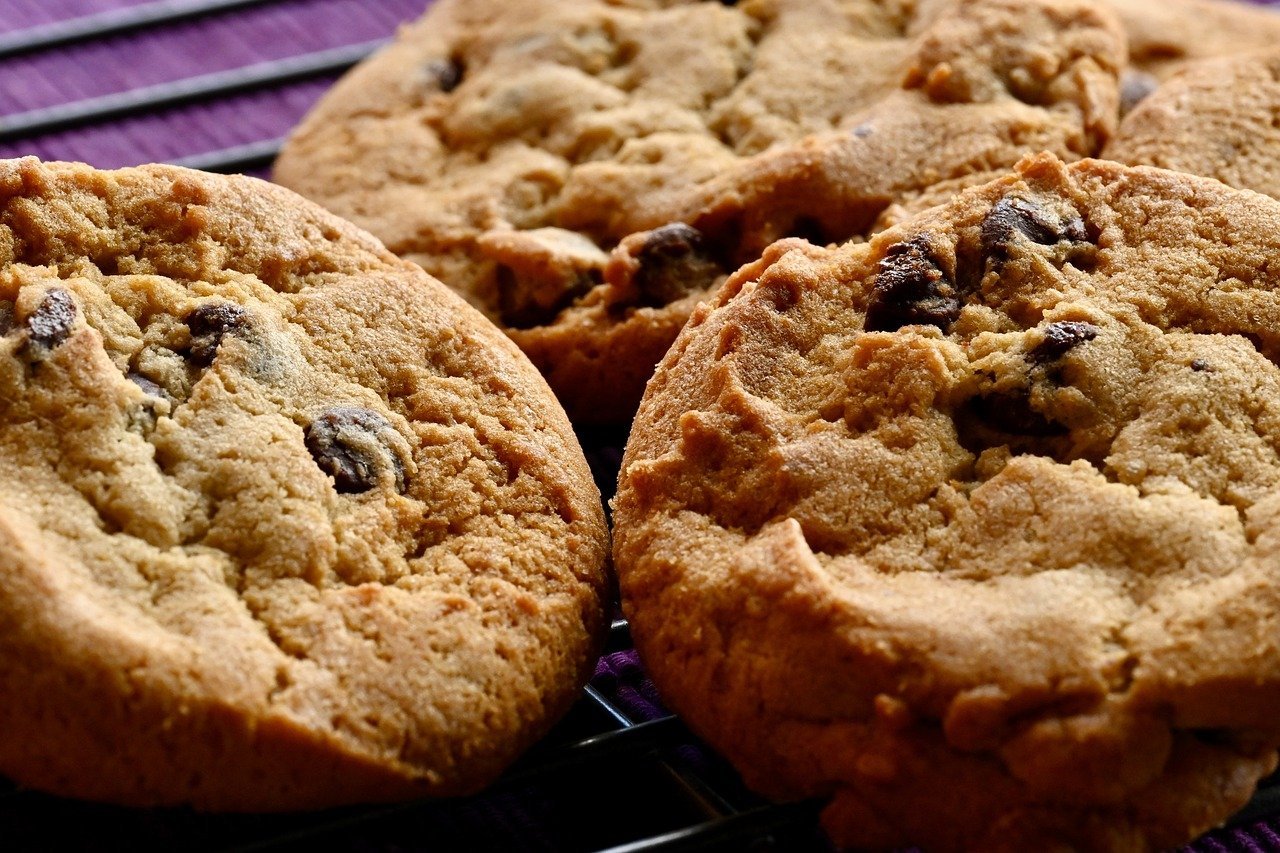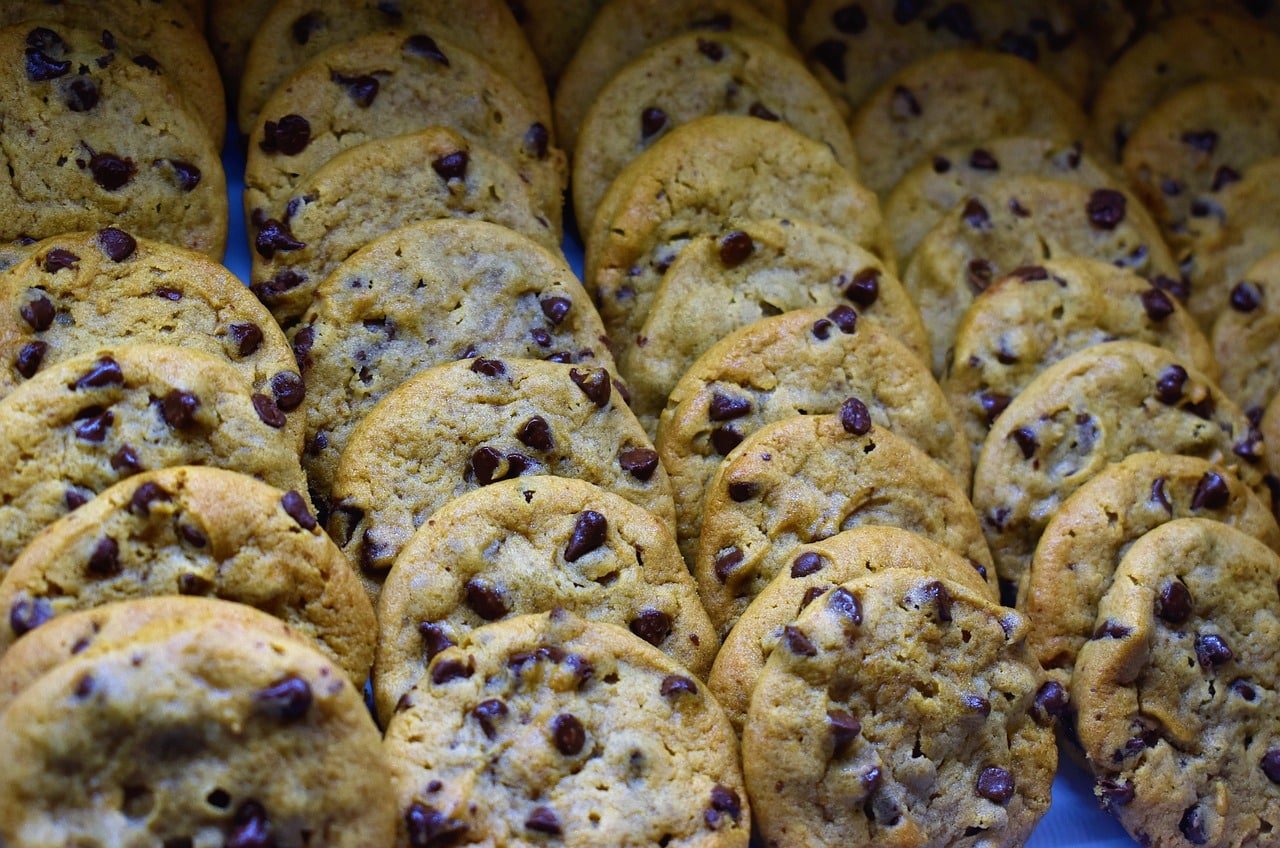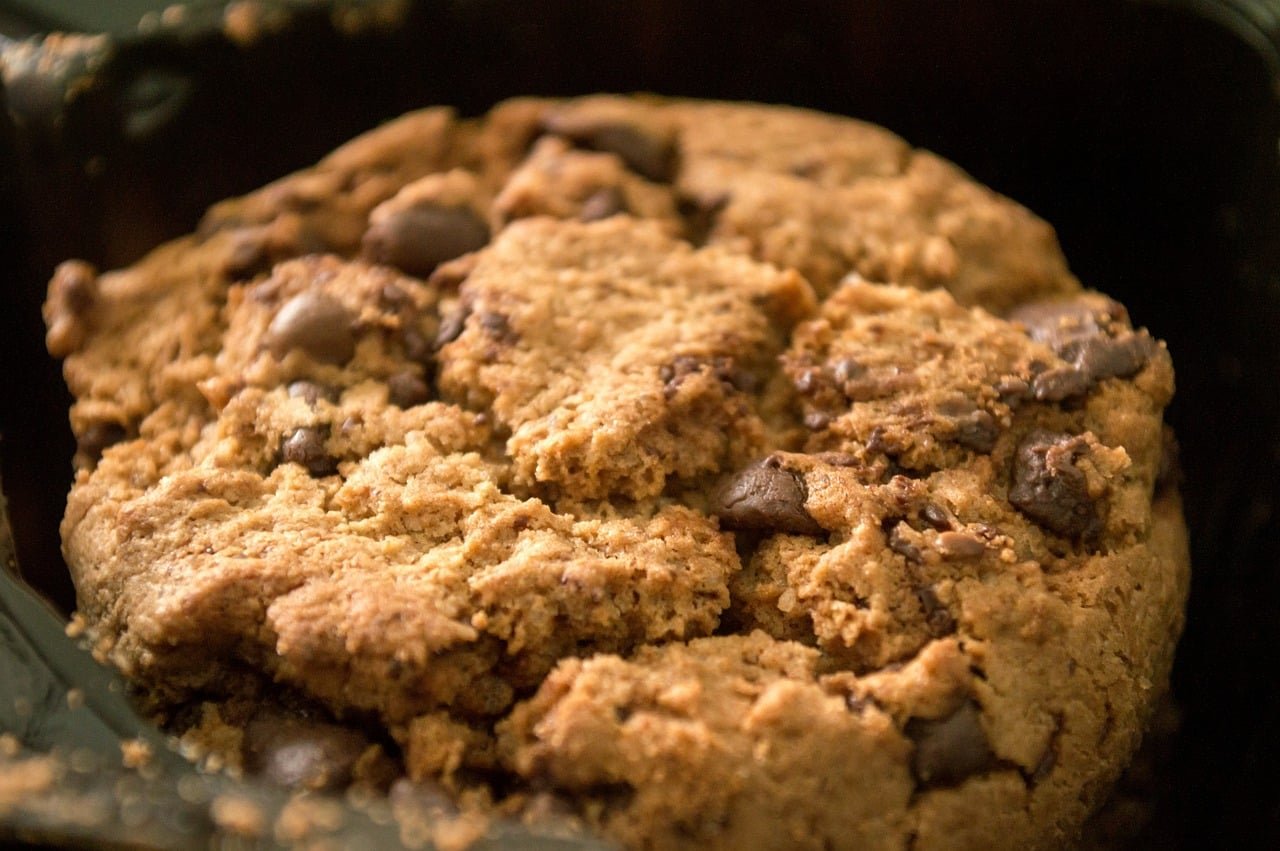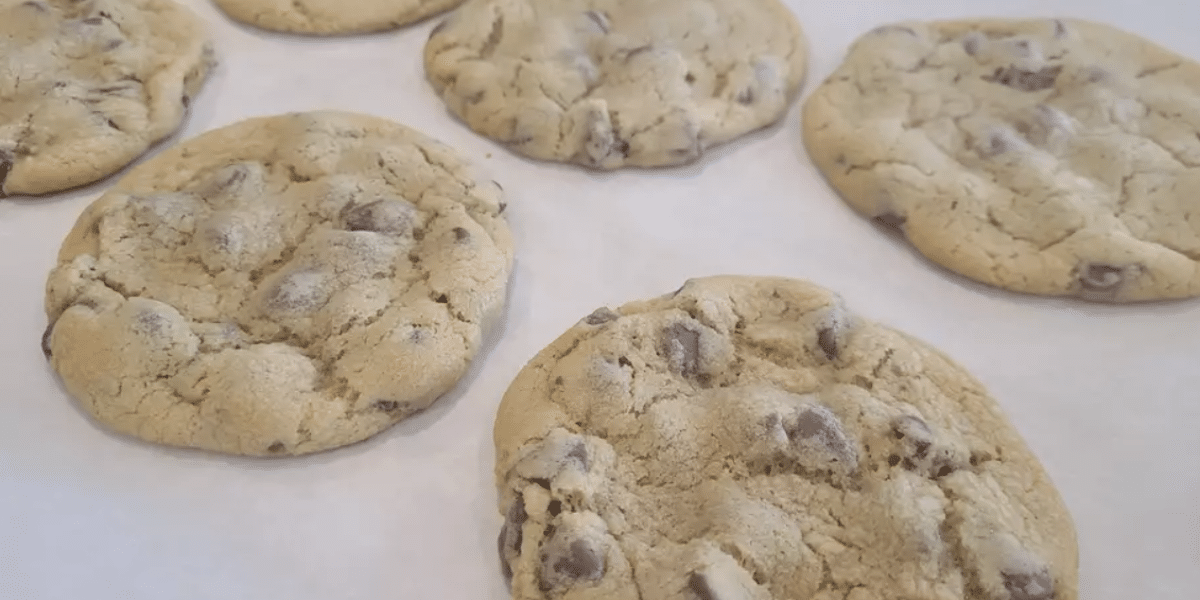Chocolate chip cookies have been a staple in many households for generations. The role of sugar in these cookies is paramount, not just for sweetness but also for texture, color, and overall mouthfeel. Understanding the impact of brown sugar on these cookies can elevate your baking game, ensuring every batch is perfect.
In the realm of baking, sugar is more than just a sweetener. It plays a crucial role in the chemistry of your baked goods. For those curious about the intricacies of cookie-making, The Science Behind Chocolate Chip Cookies offers a deep dive into the subject.
The Role of Brown Sugar in Chocolate Chip Cookies

Firstly, brown sugar, with its rich molasses content, imparts a unique flavor and texture to cookies. It’s primarily responsible for the chewy texture and caramel undertones that many of us adore in a chocolate chip cookie. But what if you find yourself without brown sugar on hand? Well, can you still whip up a delicious cookie? The answer, surprisingly, is yes! For instance, check out this Chocolate Chip Cookie Recipe Without Brown Sugar for a delightful alternative.
Sugar is indispensable in chocolate chip cookies for several reasons:
- Flavor Balance: Sugar is vital for balancing the bitterness of the chocolate, enhancing the sweetness of the dough, and preventing the cookies from tasting bland.
- Texture Impact: The type and amount of sugar used significantly influence the texture of the cookies. Brown sugar, with its higher moisture content, contributes to a softer, chewier texture, while granulated sugar can result in a crispier cookie.
- Interaction with Ingredients: Sugar interacts with other components like butter and chocolate chips, creating a harmonious blend of flavors and textures. It helps the dough spread properly during baking and enhances the overall mouthfeel of the cookies.
Brown Sugar vs. White Sugar
When deciding between brown sugar and white sugar, it’s crucial to grasp their distinctions. Brown sugar, for instance, contains molasses, which lends it a deeper flavor and richer color. On the other hand, white sugar is refined and lacks the molasses content found in brown sugar. This distinction affects not only the taste but also the texture and appearance of baked goods. While brown sugar contributes to a chewier and moister texture in cookies, white sugar tends to result in a crisper and lighter outcome. Additionally, brown sugar’s molasses content leads to a more caramel-like taste, whereas white sugar offers a neutral sweetness. Therefore, the choice between brown and white sugar depends on the desired flavor, texture, and appearance of the final product.
- Composition: Brown sugar contains molasses, giving it a distinct color and flavor. This molasses content makes brown sugar moist and clumpy, unlike the dry and granulated texture of white sugar.
- Flavor Profile: Brown sugar imparts a deeper, caramel-like flavor to cookies. This rich taste can enhance the overall flavor profile of your baked goods. For more insights on this, Why Brown Sugar Is Better For Chocolate Chip Cookies provides expert opinions.
- Texture Differences: Cookies made with brown sugar tend to be moister and softer, while those made with white sugar are crisper.
The Science Behind Sugar in Baking

Sugar serves a multifaceted role in baking, far beyond mere sweetness:
Firstly, it ensures moisture retention by binding with water, keeping baked goods like cakes and cookies moist and preventing them from drying out prematurely. Additionally, sugar contributes to the Maillard Reaction, a chemical interplay between amino acids and sugars that imbues baked goods with their characteristic golden-brown hue and enriches their flavor. Brown sugar, with its molasses content, can amplify this reaction, lending a deeper complexity to the cookie’s taste profile. Moreover, the choice of sugar significantly influences the cookie’s texture, affecting variables such as its rise, spread, and overall mouthfeel.
Experimenting with Sugar Varieties in Cookies
Bakers often explore different sugar types to achieve their desired cookie outcomes. Granulated sugar tends to produce cookies with a crunchier texture and a lighter color. On the other hand, dark brown sugar introduces a rich molasses flavor, resulting in cookies that are moister and softer in texture. Corn syrup is another option that can be incorporated to enhance sweetness and chewiness in cookies. By experimenting with these various sugar types, bakers can tailor their recipes to meet their preferences and create unique flavor profiles in their chocolate chip cookies.
Benefits of Brown Sugar in Baking

On the other hand, while brown sugar does add a distinct flavor and texture to cookies, it’s not always a must-have. Depending on the desired outcome, other sweeteners can be used as a substitute. Furthermore, if you’re curious about the science behind it, why not dive into the discussion on Is Brown Sugar Necessary for Baking Cookies?
Using brown sugar in your baking can offer several advantages:
Brown sugar plays a pivotal role in chocolate chip cookies, offering a multitude of benefits:
- Rich Flavor: The molasses in brown sugar imparts a deeper, more complex flavor profile compared to white sugar, adding depth and richness to the cookies.
- Soft Texture: Brown sugar helps create a soft, chewy, and moist texture in chocolate chip cookies, making them irresistibly delicious and enjoyable to eat.
- Visual Appeal: Cookies made with brown sugar often exhibit a beautiful golden-brown color, enhancing their visual appeal and making them even more enticing to indulge in.
These qualities make brown sugar an indispensable ingredient in chocolate chip cookies, elevating their taste, texture, and appearance to delightful heights.
Alternatives to Brown Sugar in Cookies
While brown sugar holds its status as a beloved ingredient in many kitchens, it’s worth noting that there exists a variety of alternatives that can serve as viable substitutes. These alternatives not only offer different flavor profiles but also cater to various dietary preferences and restrictions, making them versatile additions to any pantry.
Whether you’re faced with an empty brown sugar jar or simply seeking to diversify your baking repertoire, exploring these options opens up a world of culinary possibilities. From the rich sweetness of honey to the robust depth of molasses, each substitute brings its own unique character to recipes, allowing for a spectrum of tastes and textures to be achieved.
As you venture into the realm of alternative sweeteners, consider the potential nuances they offer and embrace the opportunity to elevate your baking endeavors with creativity and innovation. these Brown Sugar Alternatives in Chocolate Chip Cookies can be incredibly handy.
Tips for Perfect Chocolate Chip Cookies
To create the ideal cookie, several factors demand attention:
- Butter Temperature: The temperature of your butter is critical. Butter that is excessively softened or melted can dramatically alter the cookie’s texture and spread during baking.
- Baking Agents: Achieving the perfect balance between baking soda and baking powder is essential. This equilibrium influences how much the cookie rises and spreads as it bakes, ultimately determining its final texture.
- Chilling the Dough: Before placing the cookie dough in the oven, consider chilling it. This simple step can yield a thicker, chewier cookie that retains its shape better during the baking process, resulting in a more satisfying texture.
FAQs :
What role does brown sugar play in chocolate chip cookies?
Brown sugar contributes to the chewiness, moisture, and caramel flavor of chocolate chip cookies.
Can I substitute brown sugar with white sugar in chocolate chip cookies? Yes, but it will affect the texture and flavor of the cookies.
How does brown sugar impact the texture of chocolate chip cookies?
Brown sugar adds moisture to the cookies, making them chewier compared to cookies made with white sugar.
What happens if I omit brown sugar from my chocolate chip cookie recipe?
The cookies may turn out drier, less chewy, and lack the characteristic caramel flavor associated with brown sugar.
Can I use other sweeteners instead of brown sugar in chocolate chip cookies?
Yes, you can use alternatives like honey, maple syrup, or agave nectar, but they will impart different flavors to the cookies.
Does the type of brown sugar affect chocolate chip cookies differently?
Yes, light brown sugar adds a milder flavor, while dark brown sugar contributes a richer, more intense caramel taste.
How does brown sugar affect the color of chocolate chip cookies?
Brown sugar contributes to the golden-brown color of chocolate chip cookies due to the caramelization of its molasses content during baking.
Why is brown sugar preferred over white sugar in chocolate chip cookie recipes?
Brown sugar adds depth of flavor and moisture to chocolate chip cookies, enhancing their overall taste and texture.
Can I adjust the amount of brown sugar in my chocolate chip cookies? Yes,
you can adjust the amount of brown sugar to control the level of sweetness and chewiness in your cookies.
Are there any tips for using brown sugar in chocolate chip cookies?
Ensure that the brown sugar is well packed when measuring it for accuracy, and consider experimenting with different ratios of brown to white sugar for varied textures and flavors.
Conclusion
Understanding the crucial role that brown sugar plays in the creation of chocolate chip cookies can significantly enhance your baking experience. By taking the time to explore the intricacies of sugar selection and meticulously attending to the subtleties of the baking process, you can guarantee that every batch of cookies you create will be a true masterpiece of flavor and texture. So, the next time you find yourself in the kitchen, take a moment to reflect on the profound influence of brown sugar, and witness as your cookies emerge with an unparalleled richness and depth of taste that will surely delight your taste buds.

